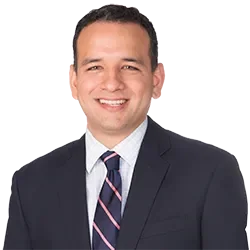ASAP
NYDOL Issues Explanatory Statement on Recent Wage Order Amendment Codifying its Longstanding Interpretation of the "13-Hour Rule"
As we reported earlier this month,1 the New York State Department of Labor (“NYDOL”) issued an amendment, effective October 6, to its Minimum Wage Order for Miscellaneous Industries and Occupations to clarify that bona fide meal periods and sleep times may be excluded from hours worked by home care aides who work a shift of 24 hours or more in accordance with federal Fair Labor Standards Act regulations (“13-hour rule”). Because the NYDOL issued the amendment pursuant to the State Administrative Procedure Act as an emergency regulation, it is effective for only 90 days, and requires the publication of a statement explaining why the emergency regulation was necessary. The NYDOL issued that explanation today.
On October 25, 2017, the NYDOL published a Notice titled “Home Care Aide Hours Worked” (“Notice”) explaining why it considered the emergency regulation necessary for the “preservation of public health, public safety and general welfare.” Specifically, the NYDOL stated it issued the emergency regulation to:
[P]reserve the status quo, prevent the collapse of the home care industry, and avoid institutionalizing patients who could be cared for at home, in the face of recent decisions by the State Appellate Divisions that treat meal periods and sleep time by home care aides who work shifts of 24 hours or more as hours worked for purposes of state (but not federal) minimum wage. As a result of those decisions, home care agencies may cease to provide home care aides thereby threatening the continued operation of this industry that employs and serves thousands of New Yorkers by providing vital, lifesaving services and averting the institutionalization of those who could otherwise be cared for at home. Because those decisions relied upon the Commissioner’s regulation, and rejected the Department’s opinion letters as inconsistent with that regulation, this emergency adoption amends the relevant regulations to codify the Commissioner’s longstanding and consistent interpretations that such meal periods and sleep times do not constitute hours worked for purposes of minimum wage and overtime requirements.
The Notice disavows the Appellate Division’s First Department decision in Tokhtaman v. Human Care and the Second Department’s decisions in Andryeyeyva v. New York Health Care, Inc., and Moreno v. Future Care Health Srvs., Inc., asserting that the courts did not properly take into account the Commissioner’s longstanding and consistent interpretation that uninterrupted meal periods and uninterrupted sleep periods are not compensable time, i.e. such periods are not “hours worked” under the New York Labor Law.
The Notice provides historical context for the Commissioner’s longstanding interpretation that meal periods and sleep time are not compensable, explaining that even as the scope of the minimum wage coverage expanded over the years, the Commissioner of Labor continued to interpret the statutory requirement to pay minimum wage for “each hour worked” to exclude uninterrupted sleep and meal periods for workers who were employed by agencies to work in the home of a client for extended periods. Those interpretations were set forth in legal opinions and determinations issued by the Commissioner.
The historical context provides further support for the NYDOL’s issuance of the emergency regulation “to avert an impending crisis” and preserve the “public health, safety, and general welfare to ensure that home care aides will be available to provide care for, and avoid the institutionalization of, those who rely on home care.” Indeed, the Notice estimates there are 330,650 home care aides employed in New York State, and predicts that the regulation will have no adverse impact on their jobs or employment opportunities, but rather will ensure their continued employment by allowing home care agencies to remain in business. The NYDOL expects there will be no negative impact on home care agencies that have been operating according to industry standards, since these are codified by the emergency regulation. The purpose of the regulation is to eliminate “any instability introduced by decisions recently issued by the State Appellate Divisions.” Though the emergency regulation is temporary (expiring on January 3, 2018), the NYDOL intends to issue a permanent regulation pursuant to a rulemaking process that will consist of a formal notice-and-comment period and a public hearing.
This is certainly a step in the right direction by the NYDOL, but more steps remain before the home care industry’s concerns are allayed. While the emergency regulation may “preserve the status quo,” advocacy groups for home care aides and others have threatened to challenge the emergency regulation and to try to keep it from becoming permanent. Because the emergency regulation does not contain language making it retroactive, employers that previously relied on the 13-hour rule are concerned about potential liability for unpaid wages if the Court of Appeals does not eventually reverse the Appellate Division decisions.2
Given the NYDOL’s explanation that the Commissioner has always interpreted the state’s minimum wage laws to exclude meal periods and sleep time, it is hoped the Court of Appeals will promptly consider the issue and reverse the Appellate Division decisions that invalidated long-standing NYDOL policy. This is necessary to assure the home care industry that it does not face a potential six years of back pay liability.
Employers should note the importance of the NYDOL’s incorporation into New York law of the FLSA and its implementing regulations. Employers must comply with these standards by ensuring that any live-in home care aides are provided adequate sleeping facilities, certify that their meal and sleep times have not been interrupted, and enter into written agreements with the home care agency establishing that meal periods and sleep time are not compensable as hours worked.
Littler closely monitors legal developments affecting the homecare industry and we have developed strategies for compliance specifically tailored to the alternative compensation and staffing models. Please contact the authors of this article for additional strategies and any additional information needed.



